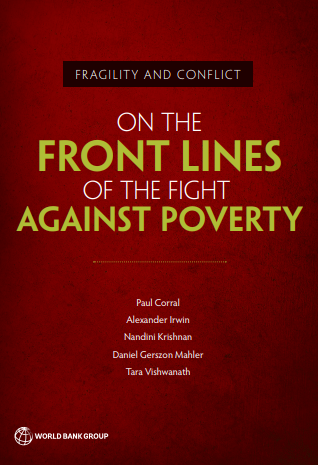Fragilidad y conflicto
Editorial: The World Bank Group
Licencia: Creative Commons (by)
Autor(es): Corral, Paul; [et al.]
Fragility and conflict pose a critical threat to the global goal of ending extreme poverty. Between 1990 and 2015, successful development strategies reduced the proportion of the world's people living in extreme poverty from 36 to 10 percent. But in many fragile and conflict-affected situations (FCS), poverty is stagnating or getting worse. The number of people living in proximity to conflict has nearly doubled worldwide since 2007. In the Middle East and North Africa, one in five people now lives in such conditions. The number of forcibly displaced persons worldwide has also more than doubled in the same period, exceeding 70 million in 2017. If current trends continue, by the end of 2020, the number of extremely poor people living in economies affected by fragility and conflict will exceed the number of poor people in all other settings combined. This book shows why addressing fragility and conflict is vital for poverty goals and charts directions for action. It presents new estimates of welfare in FCS, filling gaps in previous knowledge, and analyzes the multidimensional nature of poverty in these settings. It shows that data deprivation in FCS has prevented an accurate global picture of fragility, poverty, and their interactions, and it explains how innovative new measurement strategies are tackling these challenges. The book discusses the long-term consequences of conflict and introduces a data-driven classification of countries by fragility profile, showing opportunities for tailored policy interventions and the need for monitoring multiple markers of fragility. The book strengthens understanding of what poverty reduction in FCS will require and what it can achieve.
[Washington: 2020]
Compartir:
Una vez que el usuario haya visto al menos un documento, este fragmento será visible.


